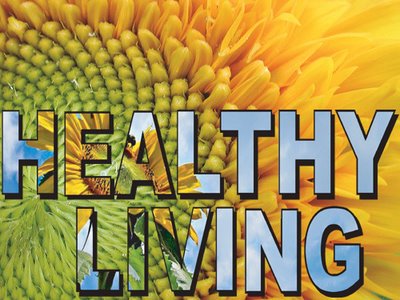Here is a good article that gives you a pretty good run down on Carbohydrates, Proteins, and fats. With all the crazy things we here about the different fats and what carbs and proteins actually do, maybe this will help you get it organized in your thoughts.
This one was found posted on an article board on the net.
With all the confusing dietary information available these days, it's helpful from time to time to get back to a few nutritional basics. Here we look at types of fat, and examine the role of each in our daily quests for healthier eating.
Carbohydrates, proteins, and fats supply 100% of the energy we absorb from food. They are interchangeable in terms of the type of energy each supplies--but fats have over double the energy content: nine calories per gram versus four for proteins and carbohydrates. And they very much differ in how quickly they supply that energy: carbohydrates are the quickest, and fats are the slowest. Because fat is the most energy-efficient form of food, the body stores excess energy as fat. An excess of only 200 calories a day for 10 days will result in a weight gain of nearly half a pound, mostly as fat. This fat is stored in the abdomen and under the skin--but also within blood vessels and organs, where it blocks blood flow with often devastating results. The positive side of this is that a small reduction in fat saves far more calories than the same reduction in carbs or protein, and therefore might be viewed as a shortcut to weight loss. Of course, the main reason to reduce fat in your diet remains to lower cholesterol, the artery-clogging substance used to move fatty acids around the body.
It's widely understood that not all fats are bad. Still, this can sometimes be hard to remember when we, say, pick up a can of cashews in the supermarket and read with concern that there are 14 grams of fat in a one-ounce serving. Matters are further complicated when it turns out some of this fat is "bad fat"; the nuts were not dry-roasted but cooked in cottonseed oil. So what should we look for if we want to reduce bad fats and increase good ones in our diets?
Monounsaturated fat is the fat we refer to as "good fat." It is found in foods like canola oil, dry nuts, and avocado. Up to 20% of one's total calories can come from this type of fat. There's evidence that this fat can contribute to weight loss and lower LDL ("bad") cholesterol.
Polyunsaturated fat, which is found, among many other foods, in salmon, tuna, and mackerel, is the next-best fat. Up to 10% of our caloric intake can come from this type of fat. In our cashew example, nearly 10 of the 14 fat grams in a serving come from unsaturated fats (and mostly monounsaturated). Now the nuts are starting to look like a healthy snack.
Trans fat, which the FDA now requires manufacturers to list in the Nutrition Facts section of their products, was once thought to be okay but now is clearly recognized as an artificial food product to be avoided. These are the fats in many processed foods, as well as sweets like cookies and cakes. They are created when hydrogen is added to unsaturated oils to produce a solid fat. Ingredients like "partially hydrogenated vegetable oil" indicate the presence of trans fat and should send off warning signals that the product is not a healthy choice.
Saturated fat is the fat from animal products, and is found in foods like meat, whole milk, whole-milk cheese, and butter. Meat is by far the best source of protein, and therefore lean cuts in moderate 3- to 5-ounce portions can be part of a healthy diet for those who exercise regularly. Still, look for ways to reduce saturated fat from your diet; for example, reserve fried foods as a special treat or eliminate them altogether.
There are a variety of food choices that are always a good idea. Fruits, vegetables, grains, and most nuts contain no cholesterol or saturated fats. Furthermore, fibrous foods like citrus fruit, strawberries, beans, and oatmeal lower cholesterol by binding fats in the intestine. Add these whole foods to your diet in liberal quantities.
There has been continued controversy over the value of carbohydrate for a number of years. It bears repeating that carbohydrate, which is a vital nutrient for distance runners, does not in and of itself cause weight gain. It is an excessive caloric intake that causes weight gain. That said, refined carbohydrates in large amounts can have other effects, such as causing many people to feel an energy surge at lunchtime followed by lethargy in the afternoon. Enter glycemic index (GI), and glycemic load (GL). GI refers to how rapidly a food converts to glucose in the blood; GL refers to how much carbohydrate it contains in the first place. The trouble with white rice or potatoes is that they have a high GI and GL, without the fiber. A food like corn has a fairly high GI, but you're benefiting from the whole grain, which is also slowing the rapidity of the food's conversion to sugar.
Viscous fibers like pectin, guar, and oat bran can delay stomach emptying and delay absorption of food. Even fat with a meal can delay gastric emptying. It's not that the index of the particular food changes, but rather that it acts differently when in a mixed meal. Because whole grains, fruits, and vegetables are absorbed more slowly, they don't disrupt your blood sugar and insulin levels nearly as much--and can help you feel even-keel and perhaps fuller longer--as foods with high GIs that provide a quick but short-lived energy spike.

